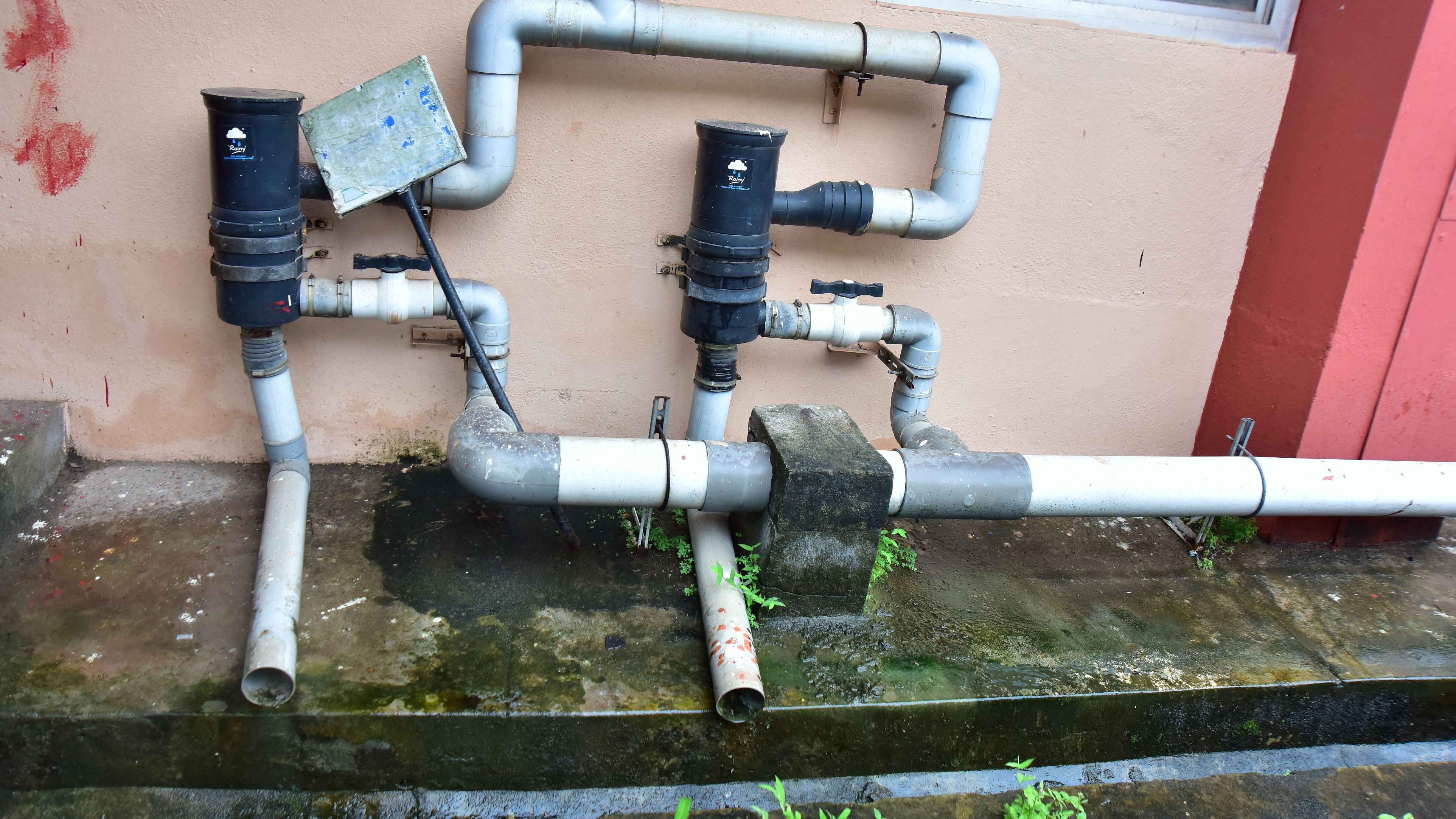
Credit: DH File Photo
The Bangalore Water Supply and Sewerage Board (BWSSB) has started a new survey of all the properties in the city to identify those that have failed to install a Rain Water Harvesting (RWH) system in their premises. Given that the state is witnessing severe drought and water security for the city is a cause of concern, the experts in the domain have pointed out the importance of catching rainwater.
Sources in BWSSB said that the survey is also being taken up since the officials were not convinced about the number of RWH systems in the city.
According to data from the BWSSB, there are close to 10.6 lakh water connections in the city and only about 1.8 lakh of them have installed a RWH system. Close to another 43,000 of the households have been paying a penalty to the
BWSSB.
That brings the total number of households that have to mandatorily install the RWH system to only close to 2.3 lakh.
“We felt that the numbers are low and there are many properties that have not been included. Hence the survey,”
According to the BWSSB Amendment Act, 2011 all properties constructed in plots above 60x40 feet should have a RWH system. Since the law was applicable retrospectively, many older properties may have been left out of the ambit, a senior BWSSB official said.
The last survey was conducted in 2016, and the data did not seem convincing, the official added.
The survey is being conducted by meter readers during the monthly billing period.
“The meter readers will observe the structure of the houses and check if they have installed a RWH. This way, by next month, we should have accurate data,” said Suresh B, BWSSB Engineer-in-chief.
While the BWSSB is trying to create awareness among people, there are many challenges on the ground, said another official.
“The mindset of the people should change. Also, a few houses constructed before the mandatory rule was passed have space constraints, making it difficult to install such a system. We will have to address such concerns,” yet another senior BWSSB official said.
Close to 43,000 households that have been identified for non-implementation of RWH are paying BWSSB close to Rs 1.5 crore in penalty every month.